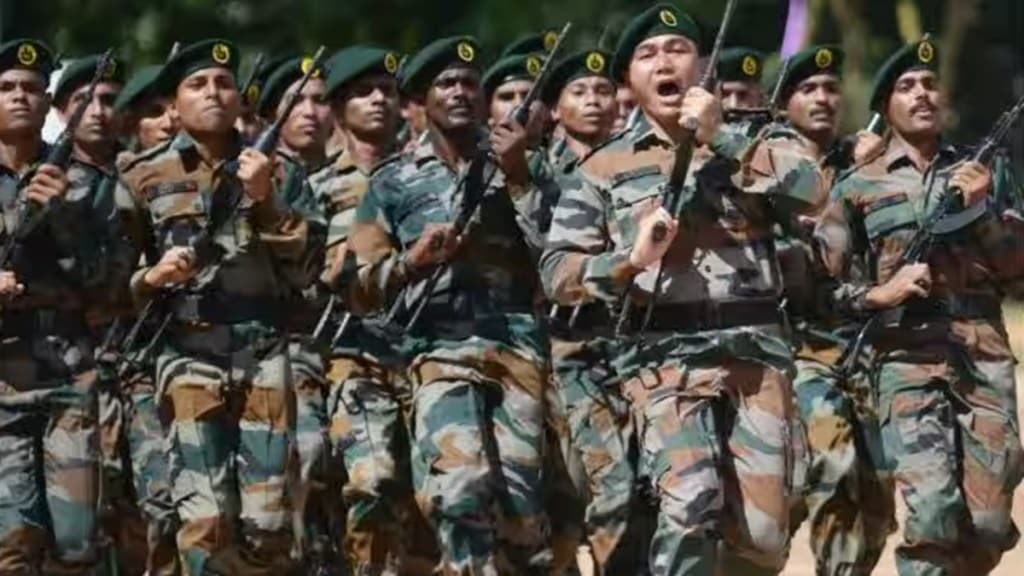By Lt Col Manoj K Channan
Command, control, and discipline are the cornerstones of military effectiveness and operational success. A well-functioning armed forces unit depends on a structured command hierarchy, effective control mechanisms, and a culture of discipline that ensures seamless coordination and adherence to orders. In the context of the Indian Armed Forces, which comprises the Army, Navy, and Air Force, the existing legal framework is governed by separate acts, namely the Army Act of 1950, the Navy Act of 1957, and the Air Force Act of 1950. While these acts have served as the backbone of military governance for decades, the evolving nature of warfare, security challenges, and the push for greater integration necessitate a holistic approach to command, control, and discipline. The introduction and passage of the Inter-Services Organisation (Command, Control & Discipline) Bill – 2023, which empowers the heads of Inter-Services Organisations (ISOs) with disciplinary and administrative powers, is a timely and imperative step toward achieving these goals.
The Indian Armed Forces, renowned for their professionalism, bravery, and commitment to the nation’s defence, have historically operated under the umbrella of their respective service acts. The Army Act, Navy Act, and Air Force Act have provided the legal framework for maintaining discipline, enforcing command structures, and ensuring the proper functioning of each service branch. These acts have stood the test of time and withstood judicial scrutiny over several decades.
However, as the global security landscape evolves, military operations become more complex and interdependent. The emergence of asymmetric threats, cyber warfare, and the need for joint operations demand greater coordination, communication, and seamless integration among the different branches of the armed forces. The Inter-Services Organisation (Command, Control & Discipline) Bill – 2023 is essential in this context.
This bill acknowledges the requirement for a unified approach to command, control, and discipline within the armed forces by establishing a precise and uniform mechanism across all ISOs. By granting the Commander-in-Chief and Officer-in-Command of ISOs the authority to exercise disciplinary and administrative powers, regardless of the specific service the personnel belong to, the bill fosters a sense of unity and collective responsibility. This is especially significant as India is moving forward with the establishment of Theatre Commands, which are expected to be promulgated on August 15, 2023.
The concept of Theatre Commands marks a monumental shift in the way India’s military operations will be planned and executed. These commands aim to integrate the capabilities of the Army, Navy, Air Force, and other relevant branches into a single cohesive unit, enhancing operational efficiency and reducing redundancies. A robust foundation of jointness, integration, and shared responsibility must be established for Theatre Commands to succeed. The Inter-Services Organisation (Command, Control & Discipline) Bill – 2023 aligns perfectly with this vision.
One of the key benefits of the bill is eliminating the need to revert personnel under disciplinary proceedings to their parent service units. This streamlines the disciplinary process, enabling ISO’s to handle cases promptly and efficiently. As a result, precious time will be saved and valuable resources, allowing the armed forces to focus on their primary mission of safeguarding the nation’s security.
Moreover, the bill empowers Commanding Officers within ISOs to initiate disciplinary and administrative actions. This provision ensures that discipline is maintained at every level of the command hierarchy, even without higher-ranking officials. It fosters a culture of responsibility and accountability, essential traits in any effective military organization.
Critically, the Inter-Services Organisation (Command, Control & Discipline) Bill – 2023 does not seek to replace or alter the existing service acts that have been the bedrock of military governance. Instead, it complements these acts, enhancing their efficacy within the context of ISOs. This approach preserves the tried-and-tested legal safeguards while promoting greater integration and jointness among the armed forces.
In conclusion, the Inter-Services Organisation (Command, Control & Discipline) Bill – 2023 represents a pivotal moment in the evolution of India’s military governance. As the armed forces gear up to establish Theatre Commands, this bill provides the legal framework to foster jointness, integration, and effective command and control. By empowering the heads of ISOs with disciplinary and administrative powers, the bill streamlines processes that enhance accountability and ensure the armed forces’ seamless functioning as a unified entity. As India faces complex and dynamic security challenges, a cohesive and integrated armed forces structure is not just necessary but the need of the hour. The bill is a decisive step in the right direction, solidifying India’s position as a capable and forward-looking military power on the global stage.
The author is an Indian Army Veteran.
Disclaimer: Views expressed are personal and do not reflect the official position or policy of Financial Express Online. Reproducing this content without permission is prohibited.
